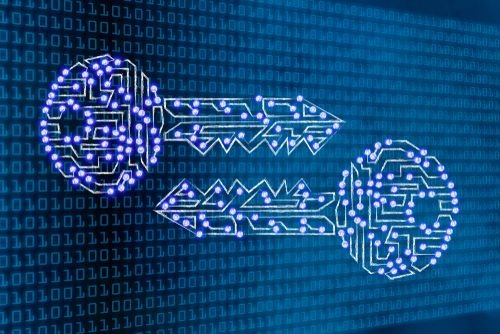
Blockchain technology is increasingly being explored as a solution to enhance the integrity and security of voting systems. Traditional voting methods, whether paper-based or electronic, often face challenges such as voter fraud, tampering, and lack of transparency. Blockchain’s decentralized, immutable, and transparent nature makes it a promising candidate for modernizing voting systems and ensuring that elections are fair and trustworthy. This article delves into the potential of blockchain for voting systems and how it can address existing challenges while ensuring the integrity of the electoral process.
Key Features of Blockchain in Voting Systems
1. Decentralization: Blockchain operates on a network of distributed nodes, eliminating the need for a central authority. In the context of voting, this decentralization means that no single entity has control over the voting process, reducing the risk of manipulation and ensuring that the system is resilient to attacks.
2. Immutability: Once data is recorded on the blockchain, it cannot be altered or deleted. This immutability ensures that votes, once cast, are securely stored and cannot be tampered with. It provides a permanent and verifiable record of each vote, which can be audited if needed.
3. Transparency: Blockchain offers a transparent and publicly accessible ledger of all transactions. In a voting system, this transparency allows all participants to verify that their vote was counted accurately without compromising voter privacy. It also enables real-time monitoring of the voting process, increasing public trust in the election’s outcome.
4. Security and Encryption: Blockchain uses advanced cryptographic techniques to secure data. Votes can be encrypted to protect voter anonymity and ensure that only authorized individuals can access the data. Additionally, smart contracts can automate and enforce rules for voting, further enhancing security.
Applications of Blockchain in Voting Systems
1. Electronic Voting (E-Voting): Blockchain can facilitate secure electronic voting, allowing voters to cast their ballots online from anywhere in the world. This system can increase voter turnout by making it more convenient to vote, especially for expatriates, disabled individuals, and those living in remote areas. E-voting on a blockchain ensures that each vote is securely recorded and counted accurately.
2. Transparent Vote Counting: Blockchain can provide a transparent and verifiable method for counting votes. Each vote is recorded as a transaction on the blockchain, and the tally can be publicly audited in real-time. This transparency eliminates the need for trust in a central authority and reduces the risk of vote manipulation.
3. Secure Voter Registration: Blockchain can be used to create a secure and immutable voter registry. This registry can prevent issues such as double voting and voter impersonation by ensuring that each voter is registered only once and that their identity is verified. Smart contracts can automate the registration process, ensuring that only eligible voters can participate.
4. Post-Election Audits: Blockchain’s immutable nature allows for thorough and accurate post-election audits. Election officials and independent auditors can verify the results by reviewing the blockchain’s transaction history. This capability provides a transparent and tamper-proof record of the election, increasing public confidence in the results.
5. Voter Identity Verification: Blockchain can integrate with digital identity systems to securely verify voter identities. This integration can prevent fraudulent activities, such as voting under false identities. Voters can use digital identity credentials to prove their eligibility, ensuring a secure and streamlined voting process.
Challenges and Considerations
While blockchain offers numerous advantages for voting systems, there are also challenges and considerations to address:
1. Scalability: Blockchain networks can face scalability issues, particularly with a large number of transactions, as seen in national elections. Ensuring that the network can handle a high volume of votes in a timely manner is crucial for practical implementation.
2. Accessibility and Digital Divide: Not all voters may have access to the necessary technology or the internet to participate in a blockchain-based voting system. Ensuring equitable access and providing alternatives for those without digital access is essential.
3. Voter Privacy: While blockchain can provide transparency, it is also vital to protect voter privacy. Ensuring that individual votes remain anonymous while allowing for public verification of the voting process is a complex challenge.
4. Regulatory and Legal Considerations: Implementing blockchain in voting systems requires navigating various legal and regulatory frameworks. Ensuring compliance with existing election laws and regulations is critical for the successful deployment of blockchain-based voting systems.
5. Security and Trust: While blockchain is inherently secure, it is not immune to attacks, such as 51% attacks or vulnerabilities in smart contracts. Building trust in the technology and ensuring that it is secure against potential threats are essential for its adoption in voting systems.
Conclusion
Blockchain technology holds significant promise for enhancing the integrity, transparency, and security of voting systems. By providing a decentralized and immutable ledger, blockchain can address many of the challenges faced by traditional voting methods, such as fraud, tampering, and lack of transparency. However, successfully implementing blockchain-based voting systems requires careful consideration of technical, legal, and societal factors.
As technology continues to evolve, it is crucial for governments, technologists, and stakeholders to collaborate in exploring the potential of blockchain in electoral processes. With the right safeguards and infrastructure, blockchain has the potential to revolutionize voting systems, ensuring fair and trustworthy elections and strengthening democratic processes worldwide.
ALSO READ: The Role of AI in Cybersecurity









